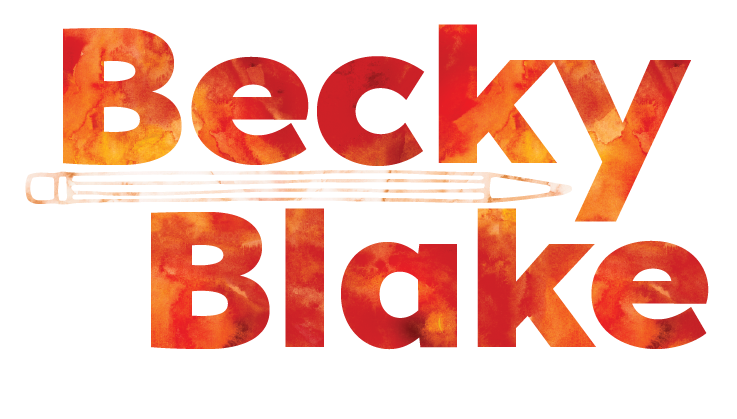It’s easy to get overwhelmed with everything that’s going on in the world, as well as having the stresses of everyday life to cope with. But what can we DO to alleviate anxiety when we feel it’s all too much?
On Monday and Wednesday nights I host four study group sessions, each attended by five secondary school students. Last Wednesday night I saw twenty rather defeated looking kids walk through my office door with downcast and anxious faces. There were comments like, “I can’t believe he’s gotten in” and “World War Three is going to start. We’re all doomed”. They were, of course, talking about the new President Elect of the United States, Donald Trump.
I’ve been mentoring kids for the past couple of decades and in recent years there’s been a steady increase in anxiety and extreme stress in my students. I’ve seen more meltdowns, school refusal and feelings of overwhelming helplessness and depression in the last five years than I did in the 15 years prior. It seems like the latest thing is to have a panic or anxiety attack.
“Our kids are carrying the weight of the world on their shoulders”
So why is anxiety the new trend? Why aren’t our kids as resilient as they used to be? There are a number of possible reasons for this, but a big player is the emergence of a huge social conscience. Our kids are carrying the weight of the world on their shoulders; they are trying to solve global warming issues, be advocates for human rights issues and fight for jobs in a bleak economic climate. And that’s all before breakfast… if they can find a low-fat, low-sugar, ethically-produced, high-super food breakfast option!
Weren’t we all faced with similar issues when we were teenagers? Well, yes and no. I remember bolting my windows shut at night in case the Russians invaded and being involved in a “Food for Africa” fundraiser at school. I recall starting Uni in the middle of the “recession we had to have” and being hit with a massive HECS bill, which I only finished paying off a few years ago. I guess the main difference is the fact that I didn’t see images of Russians with their nuclear weapons pointed at America every time I turned my phone on. I didn’t have a mobile phone, of course, and we didn’t get internet at home until I was finishing Uni. I didn’t see first hand footage of people starving in Africa. There were emotive pictures in the newspaper, but they were in black and white and seemed remote… and much more censored than what you see now. I was afraid of what I was seeing in the world, but I wasn’t surrounded by and immersed in fear.
In English we studied Shakespeare and Pride and Prejudice, which had their own sets of issues, but we didn’t study books where teenagers were having sex (we learned that from Judy Blume!), were being persecuted for coming out in their sexuality or were killed for wearing or not wearing a burqa. There certainly were not any “f” words in our school novels, which now, among other words, are quite commonplace. We were somewhat sheltered from more intense issues and language, whereas for the youth of today nothing seems to be taboo. So this is the argument: Our children are going to become adults soon. They are going to be faced with all this and more. We should start preparing them for it.
“…the cognitively developing teenaged brain is quite often not equipped to deal with processing the enormities of world issues”
Again, the answer is yes and no. For a start, every child is a different individual with different tolerance levels and levels of sensitivity and will react differently. Yes, they are going to face the harsh realities of the world soon enough and need to be in the loop with what’s going on. BUT at school they are facing their own issues; dealing with the pressure of study, working out how they fit within the school social hierarchy, negotiating with parents they don’t think understand them and grappling with coming to terms with who they are as a person and where they want to go in the future. For most kids, that’s more than enough! In addition, the cognitively developing teenaged brain is quite often not equipped to deal with processing the enormities of world issues. This can lead to automatic responses from default parts of the brain, triggering the sympathetic nervous system and resulting in emotional reactions and growing anxiety as the body struggles to cope with the burdened stress. Whilst kids must certainly be aware of the refugee crisis from the media around them, carrying around the moral implications of this as well as dealing with everything a teenager is dealing with must surely be too great a burden to bear.
It’s affecting so many kids in so many ways. The week before Trump was elected, one of my study groups started a discussion on the new refugee laws being introduced to keep the desperate and needy out of our country. A couple of the students were quite distraught, worried and embarrassed about the precarious plight of these people turning to us for refuge and being denied basic human rights. One girl burst into tears and others expressed their feelings of overwhelming gloom. This overwhelming gloom was consuming these kids to the point they weren’t able to get on and function with everyday life because it all seemed too much to handle. They needed to get their mindset straight to be able to get back on track with their thoughts and their lives.
“…we become swamped and overwhelmed in the immensity of it all and cripple ourselves into not being able to do anything at all”
So what can we do about this stress? Tell our kids to get over it and not worry about it? Tell them to get involved and send them placarding on the steps of Parliament House? It’s not as easy as that. What I told this group last week as well as those on the Trump wagon this week, was simply not to buy into things too much at the moment. Yes, it’s ok to feel bad and be aware, but it’s important not to own world problems completely and to focus on our own tasks at hand, otherwise we become swamped and overwhelmed in the immensity of it all and cripple ourselves into not being able to do anything at all.
To cut the enormity, we need to stop thinking global and start thinking local. The questions I asked my students last week were: What are YOU able to DO to help the refugee crisis? Donate some money? Write a letter to your local MP, newspaper or a blog to the school newsletter? Organise a fundraiser? Send some clothing to an aid organisation? If you feel you are DOING something proactive, it will lessen the feeling of helplessness. It’s important to be able to let the rest go. “But I’m not solving the problem!” my students wailed. No you are not, but you are doing your bit to help. Your bit is a very important bit to someone who has nothing. It will solve at least part of one of their problems. And if everyone does their little bit to help where they can, it will all fit together like puzzle pieces and collectively we will do a bigger bit towards solving the problem.
One more thing to remember: different personalities deal with the stress of their social consciences in different ways. Some will emote and get upset, others will lock it away, get angry or use avoidance techniques to help them deal with it. The best thing we can do as parents and friends is keep the lines of communication open; help keep things into perspective, work through negative thoughts and separate what we are capable of from what we cannot change. Because no matter what we fear might happen, short of going to the US with a shotgun in tow, Donald Trump is President Elect to stay.




